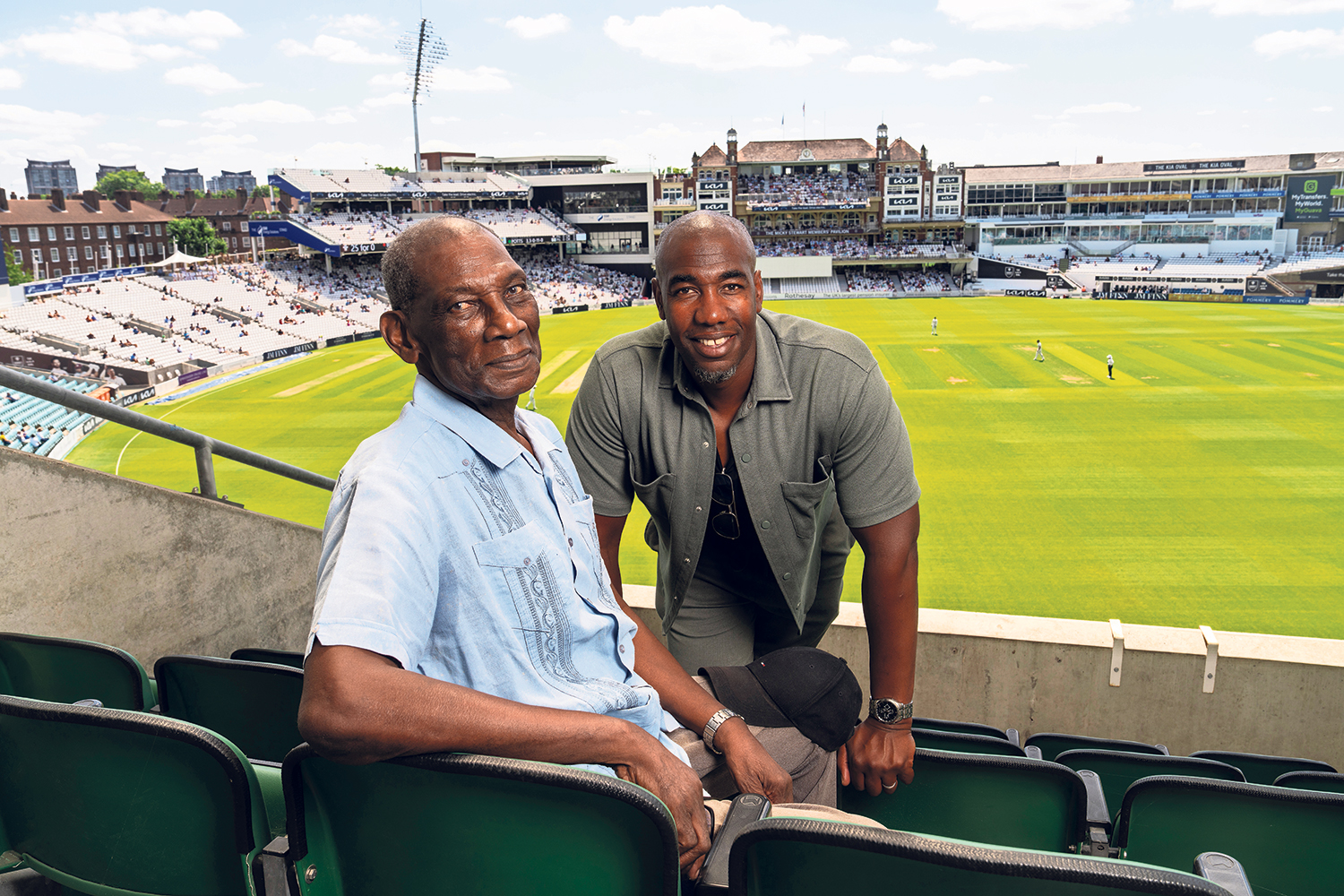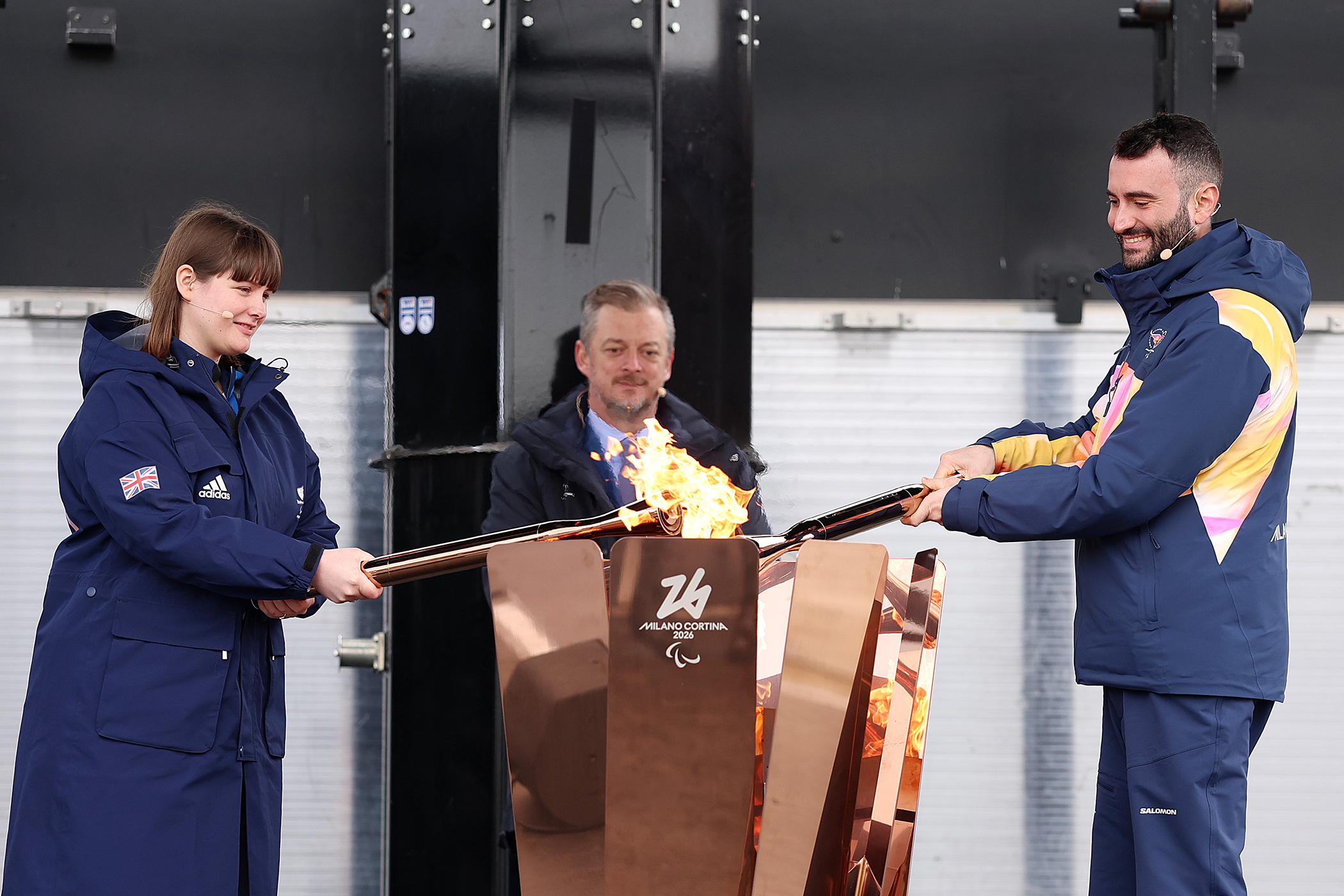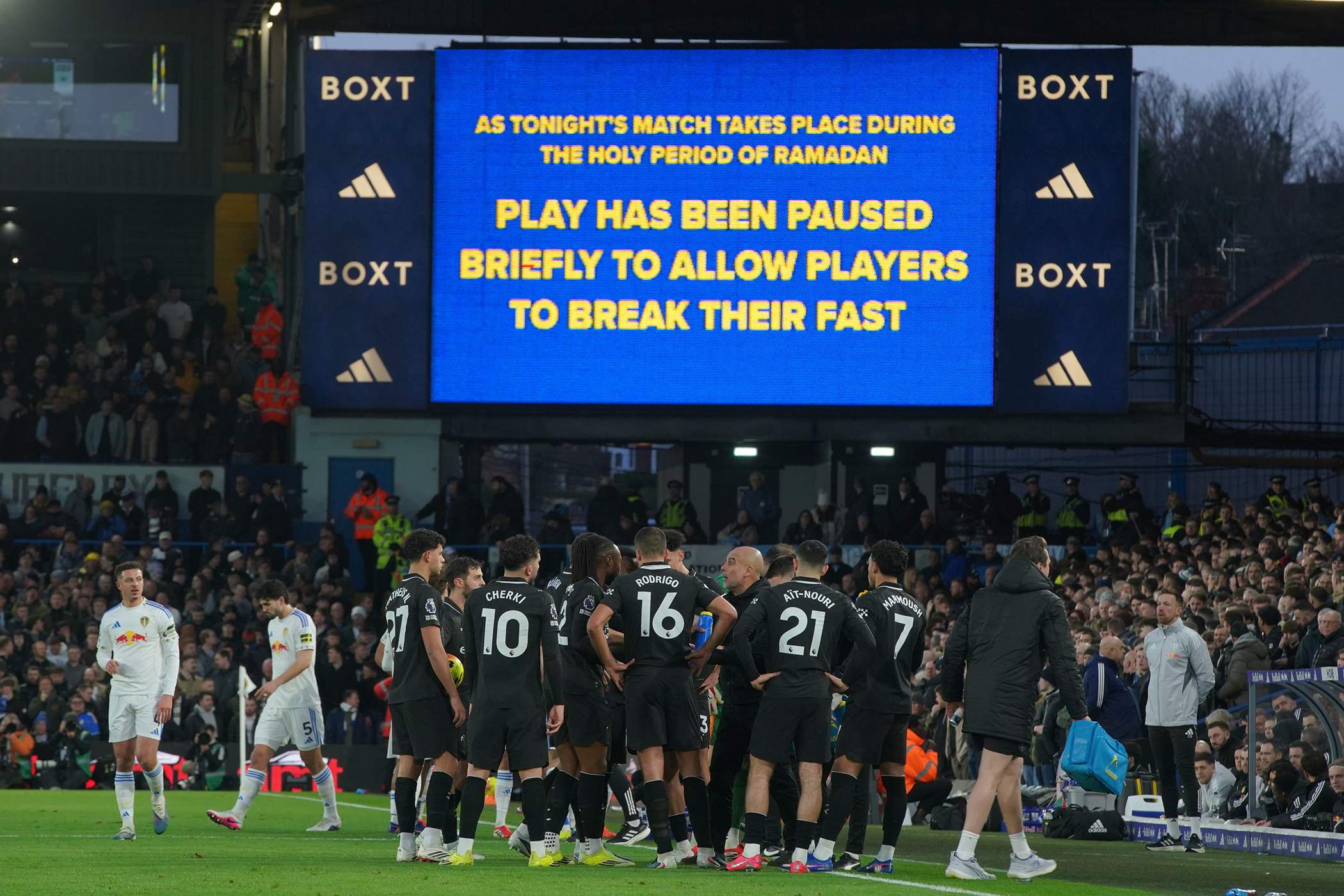Alex Tudor recalls being perched on the boundary’s edge. His dad is running in to bowl, while his mum is with more than 100 adults on the other side, watching on between jokes being told and drinks being sipped. Lining the streets around the ground are the famous red Routemaster buses.
“Yeah!” Tudor confirms. “The old style ones with everything hanging out the back.”
For decades, a case could be made that the highest standard of recreational cricket in the country was played by workers in the bus garages of London. There were 48, all with a pitch and a team, and all were staffed by young Caribbean men from the Windrush generation.
Tudor’s dad, Darrell, was one of them. In 1961, Darrell was busy taking “buckets” of league wickets in Barbados when he got three calls. One was from the national team to attend trials, the second was to move to England to work on London Transport and the third was from the British Army. “But my mum said the army is out of the question,” Darrell says, before adding her exact words. “‘You ain’t joining no army. And you ain’t shooting nobody.’”
The adventure of a new country and the promise of a steady income won out and in November 1962 Darrell moved to England and joined the garage, and team, at Mortlake.
In Tudor’s words, the London Transport leagues had long been running, but the arrival of hundreds of young Caribbean men provided an “injection” of enthusiasm and quality. While the leagues where garages would play one another were a serious standard, the real badge of honour came in selection for Central Road Services. An all-star team made up of the best players from all 48 garages, they would tour the country playing cricket against other best-of-the-best works teams and – legend has it – didn’t lose a match for 26 years. “Nobody could touch us,” Darrell, who played for CRS for years, says with a grin.
“I just remember watching it as a young guy,” says Alex, who played 10 Tests for England over the turn of the century. “And thinking these guys are serious cricketers.
“I look back and think of county cricket and a lot of them could have played but the money wasn’t sufficient because it would have just been a summer contract back then and they had families to support.”
Legends of the league included the likes of Erskine Trotman, Rawl Pinder and Harold Blackman. Raising Blackman’s name elicits smiles from both Tudors. “Every time I watched him,” Alex says. “He would get a hundred.”
A couple of years apart in age, Darrell Tudor and Blackman knew each other from Barbados. By all accounts, Tudor was one of the fastest bowlers in the Transport leagues, and he recounts tales of knocking over the legendary Pinder first ball and countless other batters backing away to square leg. But Blackman, in an interview with Simon Lister for his book Fire in Babylon, remembers their reunion slightly differently.
Newsletters
Choose the newsletters you want to receive
View more
For information about how The Observer protects your data, read our Privacy Policy
“The opening bowler came from a long way off,” Blackman says of what was only his second match in England. “I was on the front foot very early, and he bowled, and the ball still haven’t get to me yet. ‘This is not like Barbados,’ I thought, so I decided then to play off the back foot, see it off the wicket. Next ball, overpitch. I hit it back past him for four, everybody like it and shout. And the bowler look at me and I say, ‘You can’t bowl fast’. And he say ‘Blackman?’ And I say ‘Tudor?’”
If the standard of the cricket was undisputed; so, too, was the fun. At a time when racism was rife, Sundays were an opportunity for families and friends to get together, celebrate Black culture and enjoy a slice of their old home. Every bus driver was allocated a vehicle, so in advance of a fixture two or three would drive and they would make the journey with both floors packed to the brim with people, food and booze.
“On a Sunday,” Alex says, “all the garages would put on an excursion. So they’d take a couple buses and all the husbands and wives would cook up. I remember big tall flasks of rice and peas and chicken. So you can just imagine the smell.”
Darrell adds details of the tactics at play when a couple of particular fixtures would roll around each year. “You play certain garages and you know that these fellas like to drink,” he says. “So we make sure we got a lot of rum punch because after lunch, those guys can’t go back out.”
Sadly, the leagues petered out in the 1990s, a demise which correlates with the diminishing involvement of the Caribbean population in England with the sport.
For the most part, the history of the leagues are maintained by those who played in it like Darrell and those who remember it like Alex. But there are also archive materials in the London Transport Museum where former players have been interviewed, while the likes of Simon Lister and Dr Michael Collins, experts on West Indian cricket, have done much to keep the stories of these men alive. In particular, Collins has a book on the Windrush generation’s relationship with cricket coming out later this year.
The loss of the Caribbean community to cricket in England in the years since is a great shame. In 2020, a Sport England survey described the number of Black cricketers playing the recreational game as “so low as to be statistically irrelevant”.
A reduction in interest may have been inevitable. Interviews by the LT Museum in the early 1990s provide snippets that foreshadow the trajectory of the years to come. One man, named Ruel Moseley, laments a failure to encourage the younger generation. While another, Nat Griffith, talks about how his son has no interest in cricket, only football. But borderline extinction wasn’t.
Today, there are early signs that the trend is being reversed. In 2021 former England cricketer and now BBC broadcaster Ebony Rainford-Brent set up the ACE programme – an organisation designed to engage the Afro-Caribbean community. This year, it had the first professional cricketer signed from its ranks – Troy Henry, who is now at Sussex.
Nevertheless, between 1960 and 1990, there was a time when Caribbean cricket in London was king. Perched on a boundary’s edge with a drink in one hand, a plate of food in the other and your ride home already sorted in the Routemaster behind you, there were few places you’d rather be.
“It was fantastic fun,” Darrell says with a pause. “To be quite honest, I miss those days.”
Photograph by Antonio Olmos/ The Observer



